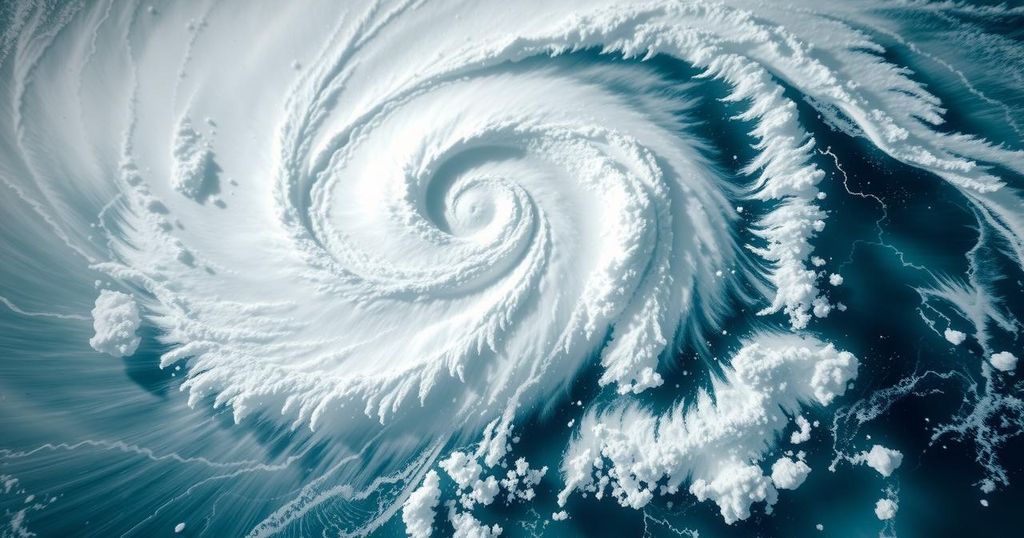Tropical Cyclone Chido struck Mayotte on December 14, registering wind speeds over 200 km/h. It caused extensive damage, resulting in a national mourning declaration by President Macron. Despite Météo-France’s advance warnings, significant loss of life occurred due to the cyclone’s rare and intense nature. Chido later impacted Mozambique, bringing heavy rainfall. The relationship between the cyclone and climate change remains unclear.
On December 14, Tropical Cyclone Chido struck Mayotte, registering wind speeds exceeding 200 kilometers per hour and gusts over 225 kilometers per hour. This cyclone is noted as the most potent storm to impact Mayotte in approximately 90 years, as reported by Météo-France. Accompanying the strong winds were torrential rains amounting to 176 millimeters within 12 hours, and hazardous sea conditions with average wave heights surpassing five meters. The cyclone’s fierce strength also resulted in the destruction of some of Météo-France’s observational infrastructure.
In response to the devastation, French President Emmanuel Macron declared a national period of mourning. Emergency relief efforts were promptly organized as early assessments indicated significant casualties among the island’s unprotected informal housing structures. Despite accurate and timely warnings issued over 50 hours prior, the severe losses of life occurred.
Météo-France issued an amber alert on December 13 at 7:00 am local time, then upgraded to a red alert the same evening, and eventually to a rare violet alert at 7:00 am on December 14. Chido’s trajectory was atypical, bypassing Madagascar, which could have diminished its strength, leading to a direct and severe impact on Mayotte. After its landfall in Mayotte, Chido subsequently reached Mozambique on December 15, where it caused heavy rainfall in both Mozambique and Malawi.
Météo-France stated that the extent of climate change’s involvement in this cyclone remains uncertain. “The impacts of Chido are above all due to its track and the direct hit on Mayotte,” noted Météo-France on its website, emphasizing the rarity of this event. They further mentioned that current scientific understanding does not support conclusions regarding the influence of climate change on the cyclone’s path and intensity.
Additionally, Météo-France La Réunion serves as the World Meteorological Organization’s Regional Specialized Meteorological Centre for Tropical Cyclones in the South-West Indian Ocean. Their seasonal forecast for 2024-2025, announced on October 31, predicted an earlier onset of cyclone activity, with expectations for normal to elevated activity levels, estimating 9 to 13 systems, four to seven of which may reach tropical cyclone status.
Tropical cyclones, particularly in the Indian Ocean, are significant meteorological events that can cause extensive damage. Mayotte, a small island, is not accustomed to storms of such intensity, and Tropical Cyclone Chido marked a historical event, reflecting the increasing unpredictability of climate patterns. This cyclone’s trajectory and strength emphasize the need for thorough meteorological monitoring and the importance of the timely dissemination of warnings to mitigate loss of life and property during such disasters.
In conclusion, Tropical Cyclone Chido has resulted in unprecedented destruction in Mayotte, highlighting the vulnerabilities of regions unaccustomed to such natural disasters. Despite the timely warnings issued by Météo-France, the cyclone’s severe impacts led to significant casualties and damage. The event raises critical questions about climate change’s influence on storm activity and the importance of robust preparedness strategies for future cyclones in the region.
Original Source: wmo.int






